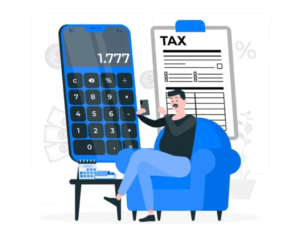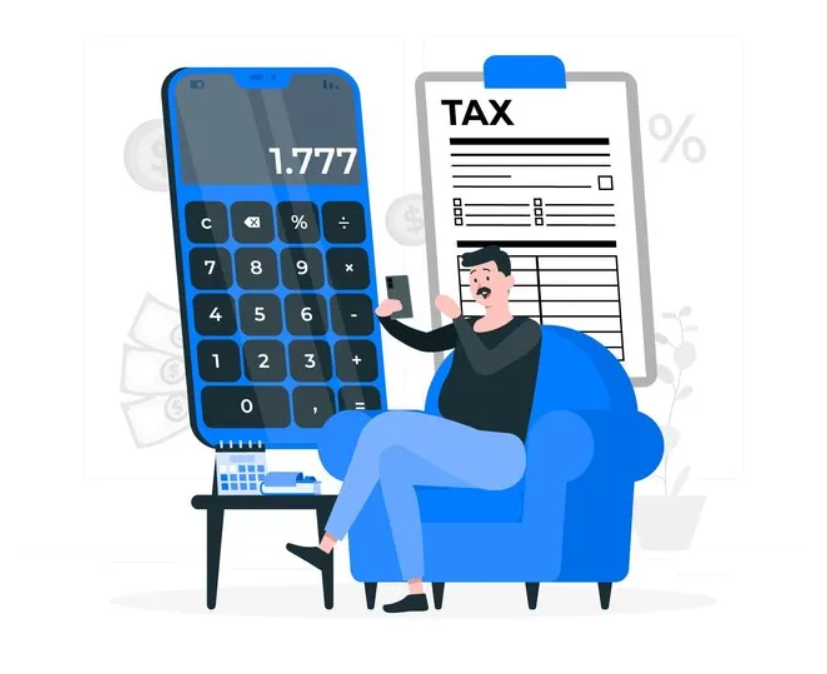
Are you an expat living outside of the UK? If so, you might be wondering about your tax obligations back home. The question of whether you owe taxes as a non-resident can be tricky, but understanding the process of filing a non resident tax return is essential to ensure you stay on the right side of the law. Whether you’re just starting your expat journey or you’ve been living abroad for years, this simple guide will walk you through everything you need to know about non-resident tax returns, HMRC self-assessment tax returns, and online UK tax returns.
What is a Non-Resident Tax Return?
If you live outside the UK but have income sourced from within the UK, you might be required to file a non-resident tax return. A non-resident tax return is a specific type of tax return for individuals who do not live in the UK but may still owe taxes on income earned in the country. This includes income from property, investments, business, and employment.
While you may not be subject to the same tax rates as UK residents, non-residents are still required to report any UK-based income. This ensures you comply with UK tax laws and avoid potential fines or legal issues.
When Do You Need to File a Non-Resident Tax Return?
You need to file a non-resident tax return if:
- You have UK income or capital gains
- You receive income from a UK pension or rental properties
- You have investments in the UK that generate taxable income
- You worked in the UK, either on a temporary or permanent basis
- You are claiming tax relief or exemptions under a double taxation agreement
It’s important to know that even if you are living abroad, income generated in the UK may still be subject to taxation. The good news is that with the right approach, you can ensure you’re paying only what you owe and potentially take advantage of any tax relief or exemptions available to non-residents.
What is an HMRC Self Assessment Tax Return?
An HMRC self assessment tax return is a way for individuals, including non-residents, to report their income and calculate how much tax they owe. You must file an HMRC self-assessment tax return if you’re self-employed, have income from property, or have received other sources of income that aren’t automatically taxed by an employer or pension provider.
For non-residents, this process can seem a bit complicated, but it’s essential to ensure you’re reporting all of your UK income correctly. The HMRC self-assessment tax return allows you to include income from different sources, claim any eligible tax reliefs, and pay your tax bill accurately.
Key Steps for Filing Your HMRC Self Assessment Tax Return:
- Register with HMRC: As a non-resident, you need to let HMRC know that you need to file a self-assessment tax return. This can be done online, and you’ll need to set up an account.
- Gather Your Financial Information: Before you begin filing your non-resident tax return, gather all the necessary documents, such as pay slips, rental income records, bank statements, and any other documents related to your UK income.
- Complete the Tax Return: Once registered, you can log into your HMRC account and start filling out the online form. This includes reporting all of your income from UK sources.
- Submit the Tax Return: Make sure you submit your tax return by the deadline to avoid penalties. HMRC gives you a deadline of October 31st for paper returns and January 31st for online returns.
- Pay Any Tax Due: After filing your non-resident tax return, HMRC will calculate the amount of tax you owe. Make sure to pay any tax due by the deadline to avoid fines and interest.
Why is Filing a Non-Resident Tax Return Important?
Filing a non-resident tax return is crucial because:
- It ensures compliance with UK tax laws: Filing a non-resident tax return ensures you’re adhering to UK tax laws and avoiding penalties.
- It helps claim tax relief: You may be eligible for tax exemptions or reductions under a double taxation agreement between the UK and your country of residence.
- It avoids unnecessary fines: Not filing your tax return on time can result in fines and interest charges.
- It keeps your tax record in good standing: Having a clear record of your taxes helps in any future dealings with HMRC.
Can I File My Non-Resident Tax Return Online?
Yes, you can file your non-resident tax return online through the HMRC website. The process of submitting an online UK tax return is straightforward and secure. By using the online system, you can easily submit your self-assessment tax return, track your progress, and make any necessary amendments if you discover an error.
Benefits of Filing Your Tax Return Online:
- Convenience: You can file from anywhere in the world, at any time, making it easier to meet deadlines.
- Accuracy: The online system automatically checks for errors and helps you avoid mistakes.
- Faster Processing: Online submissions are processed more quickly than paper returns, meaning you’ll get your tax bill or refund sooner.
- Easy Access to Your Tax History: Once you file online, you can access your tax history anytime, making it easier to track and review your filings.
What Happens If You Don’t File a Non-Resident Tax Return?
Failing to file your non-resident tax return can lead to serious consequences, including:
- Fines and Penalties: HMRC charges penalties for late tax returns or missed deadlines, even for non-residents.
- Interest on Unpaid Taxes: If you owe tax and don’t pay on time, HMRC will charge interest on the outstanding amount.
- Loss of Eligibility for Tax Reliefs: If you don’t file your return, you may miss out on available tax relief or exemptions, resulting in a higher tax bill.
- Difficulty with Future Filings: Non-compliance with your tax return obligations can make future filings more complicated and create issues with your tax records.
To avoid these issues, it’s best to file your non-resident tax return on time and stay up to date with your tax obligations.
Key Tax Reliefs and Exemptions for Non-Residents
As a non-resident, you may be eligible for several tax reliefs and exemptions. Some common ones include:
- Personal Allowance: If you’re a non-resident, you may still be eligible for the personal allowance, which allows you to earn a certain amount of income tax-free.
- Double Taxation Agreements: The UK has agreements with many countries to ensure that you don’t pay tax twice on the same income. These agreements help to reduce or eliminate the tax burden on non-residents.
- Non-Resident Landlord Scheme: If you’re renting out property in the UK, you may be eligible for a scheme that allows you to pay tax on rental income at a reduced rate.
Check with a tax professional to ensure you’re claiming all the tax reliefs and exemptions you’re entitled to.
Conclusion: Stay on Top of Your Tax Obligations
As an expat, it’s easy to overlook your UK tax obligations, but it’s essential to stay on top of them to avoid penalties and ensure you’re paying the right amount of tax. Filing your non-resident tax return is a critical step in keeping your tax affairs in order. Remember that you can complete your tax return online through the HMRC website, making the process more convenient and faster.
By staying informed about the process and deadlines for filing your non-resident tax return, you can ensure compliance, claim any available tax reliefs, and avoid any unwanted surprises.
FAQs
1. Do I need to file a non-resident tax return if I live abroad?
Yes, if you earn income from UK sources, you may need to file a non-resident tax return.
2. Can I file my non-resident tax return online?
Yes, you can file your non-resident tax return online through the HMRC website.
3. What if I don’t file my non-resident tax return on time?
You may face penalties, interest on unpaid taxes, and the loss of eligibility for tax reliefs.
4. Can I claim tax relief as a non-resident?
Yes, you may be eligible for tax reliefs such as the personal allowance and exemptions under double taxation agreements.
5. How do I register for a non-resident tax return?
You can register with HMRC online to file a non-resident tax return and set up your self-assessment account.
By following this simple guide and using online UK tax return services, you’ll be able to stay compliant and manage your taxes with ease!



